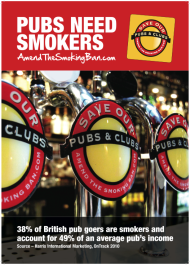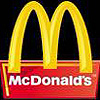 The Independent today leads with a report concerning a stunning speech given last night by Professor Julian Le Grand (left), chairman of Health England and a former senior Downing Street aide to Tony Blair. The full article is HERE but this is the bit that will attract most attention:
The Independent today leads with a report concerning a stunning speech given last night by Professor Julian Le Grand (left), chairman of Health England and a former senior Downing Street aide to Tony Blair. The full article is HERE but this is the bit that will attract most attention:
Professor Le Grand said instead of requiring people to make healthy choices – by giving up smoking, taking more exercise and eating less salt – policies should be framed so the healthy option is automatic and people have to choose deliberately to depart from it.
Among his suggestions are a proposal for a smoking permit, which smokers would have to produce when buying cigarettes, an "exercise hour" to be provided by all large companies for their employees and a ban on salt in processed food.
The idea, dubbed "libertarian paternalism", reverses the traditional government approach that requires individuals to opt in to healthy schemes. Instead, they would have to opt out to make the unhealthy choice, by buying a smoking permit, choosing not to participate in the exercise hour or adding salt at the table.
By preserving individual choice, the approach could be defended against charges of a "nanny state," he said. "Some people say this is paternalism squared. But at a fundamental level, you are not being made to do anything. It is not like banning something, it is not prohibition. It is a softer form of paternalism."
Before we dive in and ridicule his grand scheme, I should mention that I have a certain regard for Julian Le Grand because (a) I've met him and, (b) unlike many people in his position, he appeared to listen.
Three years ago, when John Reid was health secretary and struggling to come up with a policy on smoking in public places, I was invited - together with Forest chairman Lord Harris of High Cross - to meet him and three of his advisors. It was a private meeting, just the six of us, and the senior advisor was Julian Le Grand (who Ralph Harris knew of old).
For five uninterrupted minutes Ralph and I talked about passive smoking, epidemiology, the major studies, how the evidence didn't support a comprehensive ban etc etc. When we had finished, Reid turned to Le Grand and asked, "What do you think?" Le Grand replied, "I agree with them."
For the next 30 minutes we had a very agreeable discussion (Reid, it has to be said, doing most of the talking). Nevertheless, we were struck by their open-mindedness, their refusal to lecture us about the impact of smoking, and by John Reid's obvious desire to find a compromise that would give smokers some element of choice, although he made it clear that further, significant, restrictions were inevitable.
A few weeks later came the policy announcement - later included in the Labour Party's 2005 election manifesto - that smoking would be banned in all enclosed public places with exemptions for private clubs and pubs that don't serve food.
Personally, I welcome Le Grand's latest ideas - this is what politics is about - and I'm certainly not going to reject them out of hand without considerable thought. The (very clever) phrase "libertarian paternalism" is clearly designed to appeal to both camps, and especially middle England. That said, I believe that "libertarian paternalism" is an oxymoron and any attempt by government (or anti-smoking campaigners) to hijack the word "libertarian" for their own (restrictive) ends must be challenged and defeated.
At the same time, government needs our help: we have to relieve the pressure on politicians, civil servants and advisors by demonstrating that many of the health scares we read about are grossly exaggerated and the measures that are being taken (or proposed) are out of all proportion to the risk.
It's a garantuan task - the momentum is with the prohibitionist health lobby - but I wouldn't be writing this blog if I didn't think that, one day, those of us with genuinely libertarian views will prevail.
 Thursday, February 5, 2009
Thursday, February 5, 2009  Food & Drink
Food & Drink 

















